Thursday Feb 19, 2026
Thursday Feb 19, 2026
Wednesday, 10 November 2021 00:49 - - {{hitsCtrl.values.hits}}
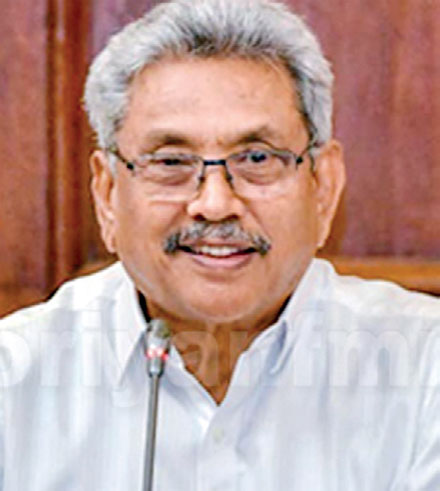
President Gotabaya Rajapaksa
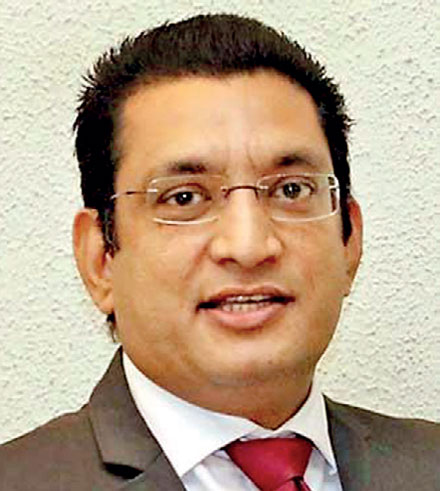
Justice Minister Ali Sabry
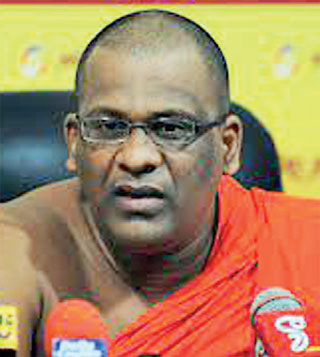
BBS General Secretary Galagoda Aththe G0.nanasara Thero
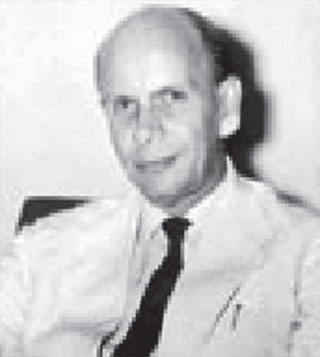
Former Solicitor-General Murugeysen Tiruchelvam
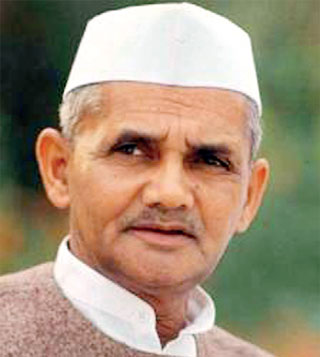
Former Indian Prime Minister Lal Bahadur Shastri
 The controversial appointment of Bodu Bala Sena (BBS) General Secretary Galagoda Aththe Gnanasara Thero as chair of the ‘One Country, One Law’ (OCOL) Presidential Task Force (PTF) by President Gotabaya Rajapaksa has created a political furore.
The controversial appointment of Bodu Bala Sena (BBS) General Secretary Galagoda Aththe Gnanasara Thero as chair of the ‘One Country, One Law’ (OCOL) Presidential Task Force (PTF) by President Gotabaya Rajapaksa has created a political furore.
The purported OCOL objective of the PTF as well as the alleged unsuitability of Gnanasara Thero to head such a body has come in for heavy criticism by several political leaders, religious organisations, human rights activists and influential sections of civil society.
In a bizarre twist Sri Lanka’s Justice Minister Mohamed Uvais Mohamed Ali Sabry too has resigned his ministerial portfolio and Parliament membership in this regard. However President Gotabaya Rajapaksa has reportedly refused to accept Ali Sabry’s resignation letter.
OCOL appointment
On 26 October President Rajapaksa appointed a 13-member Presidential Task Force to study the implementation of the concept ‘One Country, One Law’ and prepare a draft Act. The Task Force was to be chaired by BBS Gen-Secy. Galagoda Aththe Gnanasara Thero. It comprised nine Sinhalese (including the BBS Bhikku) and four Muslims.
According to the Gazette proclamation, President Rajapaksa has mandated the PTF with twin tasks. Firstly, to make a study of the implementation of the concept ‘One Country, One Law’ within Sri Lanka and prepare a draft Act for the said purpose. Secondly, to study the draft Acts and amendments that have already been prepared by the Ministry of Justice in relation to this subject and their appropriateness and if there are suitable amendments to submit proposals for the purpose and include them in such relevant draft as is deemed appropriate. The PTF is to submit the final report on or before 28 February 2022.
The bombshell announcement that came out of the blue took most Sri Lankans by surprise. This included Justice Minister M.U.M. Ali Sabry himself who had neither been consulted nor informed of the move beforehand. Minister Ali Sabry told the media that he was unaware of the setting up of the ‘One Country, One Law’ Presidential Task Force headed by Bodu Bala Sena (BBS) General Secretary Ven. Galagoda Aththe Gnanasara Thero. Sabry told the Sunday Times he was not consulted on the setting up of the Task Force. “I am not happy about the move,” he further said.
Ali Sabry’s ‘resignation’
Consequently several media reports stated that Ali Sabry was to quit the Government, Parliament and party (Sri Lanka Podujana Party). Another news report said that Prime Minister Mahinda Rajapaksa had cautioned the Justice Minister not to be hasty in resigning. The PM advised Ali Sabry to discuss the Task Force issue with President Rajapaksa after he returned from Glasgow.
Thereafter some media reports said that the Justice Minister had met the President on 5 November. It was reported that President Rajapaksa had explained the circumstances under which the OCOL Task Force was appointed and had refused to accept Ali Sabry’s resignation letter.
Subsequently the Justice Minister himself confirmed this to a local newspaper. Responding to a query, Minister Sabry said that President Rajapaksa had declined to accept his resignation. The Minister told the newspaper that the President had explained the circumstances under which the PTF had been appointed. It was to advise the President and was not meant to formulate laws. “The matter is in a sort of limbo,” Sabry had said.
Thus a huge question mark hangs over the future of Minister Ali Sabry’s resignation. There is no doubt that the dignity of the Justice Ministry has been eroded and the self-respect of the Justice Minister affronted. Moreover, it is doubtful whether Ali Sabry and Gnanasara Thero can work in tandem in the future to formulate draft legislation regarding the OCOL concept. Furthermore the Sri Lankan Muslim community is perturbed and agitated over the new PTF under the BBS Gen-Secy. There is much anxiety that the OCOL concept will be used to primarily target the beleaguered Muslim people.
Ali Sabry and GR
On the other hand, Ali Sabry enjoys a close, personal relationship with President Rajapaksa. The President’s Counsel was Gotabaya’s Chief Legal Adviser during the days of the ‘Yahapalanaya’ Government when the former Defence Secretary faced many Court cases.
Ali Sabry appeared for Gota in several cases. He also campaigned hard for Gota at the 2019 Presidential Poll. Ali Sabry even went to the extent of warning that the community “may get it in full” (ambaanaikkum kidaikkum) if they did not share in Gota’s victory by voting for him.
Another salient factor is that Ali Sabry hailing from the Kalutara District does not have an independent political base of his own. He was made SLPP National List and Cabinet Minister (the only Muslim in Cabinet) by Gotabaya Rajapaksa and the SLPP. Now Gota says he won’t let Ali Sabry go. What then can Ali Sabry do?
Also, according to some Tamil news reports, several influential Muslim religious, political and business leaders are pressurising the Justice Minister not to resign. M.U.M. Ali Sabry is therefore in an unenviable position. It remains to be seen as to how the lawyer-politician will resolve his difficult problem.
Ali Sabry’s Hamletian “resign or not to resign” dilemma revives memories of two incidents in the past related to resignations by cabinet ministers.
The first is the resignation in 1956 of former Indian Prime Minister Lal Bahadur Shastri when he was serving as Minister of Railway and Transport in the Government of Prime Minister Jawaharlal Nehru. The second is the resignation in 1968 of former Sri Lankan Solicitor-General Murugeysen Tiruchelvam when he was serving as Minister of Local Government in the Government of Prime Minister Dudley Senanayake.
Tiruchelvam (the father of Dr. Neelan Tiruchelvam) was the representative of the Ilankai Thamil Arasuk Katchi (ITAK) known as the Federal Party in English in Dudley Senanayake’s National Government formed in 1965. Tiruchelvam who was an eminent Queen’s Counsel (QC) had been nominated to the Senate then.
Lal Bahadur Shastri
Lal Bahadur Shastri succeeded Jawaharlal Nehru as Prime Minister of India in 1964 and served as PM till his untimely death in 1966. Shastri was earlier the Minister of Railway and Transport in the Cabinet of Jawaharlal Nehru.
In August 1956 there was a major railway accident at Mahbubnagar in the state of Andhra Pradesh; 112 people were killed. Taking moral responsibility for the accident, Shastri tendered his resignation but Nehru persuaded the Minister to withdraw his resignation. However in November 1956 there was another terrible railway accident at Ariyalur in Tamil Nadu State. There were 144 deaths. Shastri promptly submitted his resignation again. Once again Nehru refused to accept it.
The PM told his minister that the accident was due to no fault of Shastri. It was caused by a technical failure and the Railway Board should be held responsible if necessary. Shastri however was much troubled by the accidents and insisted that he be allowed to resign as a matter of principle. Finally Nehru relented. The resignation was accepted. The Indian PM told ‘Lok Sabha’ that Shastri was a man of conscience. “It is because he is such a man of conscience that he feels deeply whenever there is any failing in the responsibility entrusted to his charge,” said Nehru of Shastri.
Shastri set a high benchmark by his act of resignation then. It had a ripple effect in the region. In Sri Lanka, known then as Ceylon, Lanka Sama Samaja Party (LSSP) stalwart Dr. Colvin R. de Silva seized upon it. Colvin, known for pithy sayings such as “One language, two nations, two languages one nation,” used the Shastri resignation to take pot-shots at Government ministers. Colvin reportedly quipped, “In India ministers resign over matters of principle. In Ceylon (Sri Lanka) ministers resign themselves to fate.”
Murugeysen Tiruchelvam
The second incident is the resignation of a Sri Lankan Cabinet Minister who felt insulted and treated unjustly by his Prime Minister. In those non-executive president days, the Prime Minister was the effective head of government though nominally the Governor-General was in charge as the representative of Queen Elizabeth the second. Sri Lanka was not a republic then.
Murugeysen Tiruchelvam known as M. Tiruchelvam or M. Tiru was the Minister of Local Government in the Dudley Senanayake-led Government of 1965 to 1970. For the first time in post-independence history the leading Tamil political party the ITAK/FP was a constituent of the ruling Government. Tiruchelvam was the representative of the ITAK/FP in Dudley’s National Government. He was the only Tamil Cabinet Minister. Tiruchelvam had been nominated to the Upper House known as the Senate to become eligible for a ministerial portfolio as he was not an elected MP. Tiru’s Parliamentary Secretary or Deputy/Junior Minister was Ranasinghe Premadasa who later became Premier and President of Sri Lanka.
Issue over Koneshwaram Temple
The dispute with Premier Senanayake that led to Minister Tiruchelvam’s resignation was over the issue of the famous Hindu temple Koneshwaram or Thirukkoneshwaram being declared a sacred area for the Hindus. There are five ancient temples dedicated to Lord Shiv in the form of Easwaran in different littoral regions of Sri Lanka. They are called ‘Pancha Easwaran’ or five abodes of Easwaran (Lord Shiva). They are Naguleswaram, Ketheeswaram, Thondeeswaram, Muneeswaram and Koneshwaram. The Koneshwaram Temple in Trincomalee is situated on a hill in the heart of Trincomalee town. Fort Frederick was constructed by the colonialists encompassing the hill inclusive of the temple.
In early August 1968 a group of prominent Hindus representing several Hindu organisations wrote to Prime Minister Dudley Senanayake and the Hindu Minister in the Government M. Tiruchelvam regarding the Koneshwaram Temple. Their request was that the Fort Frederick precincts be declared a sacred area on account of the historic Koneshwaram Temple being located within. The question of identifying and declaring specific areas as sacred areas fell under the purview of the Local Government Ministry then
Prime Minister Senanayake seemed amenable and instructed his Local Government minister to follow it up and “take necessary action”. Minister Tiruchelvam appointed a three-member committee chaired by his ministerial Deputy Ranasinghe Premadasa to delve into the issue and compile a report with necessary recommendations. The appointment of the committee on ‘Declaration of Fort Frederick of Trincomalee, a Sacred Area’ was gazetted on 27 August 1968.
On 30 August the Ven. Mangalle Dharmakirti Sri Damasgasare Sri Sumedhankara Nayaka Thera of Tammankaduwe lodged a protest with Prime Minister Sena-nayake. According to Minister Tiru-chelvam’s former Private Secretary Ram Balasubramaniam, the Buddhist monk claimed that an “ancient place of Buddhist worship” would “get into the hands of those who are neither Sinhalese nor Buddhists” because of the committee being appointed to declare Koneshwaram a sacred area. A widespread agitation was threatened if the project was not shelved immediately.
PM Dudley Senanayake was upset by the Buddhist monk’s threat. He told Tiruchelvam to suspend the committee immediately. Tiruchelvam was shocked. He asked the PM not to be hasty and sought an appointment to discuss the matter further. Events however began to overtake.
As if on cue, Dudley Senanayake’s first cousin and MP for Dambadeniya, R.G. Senanayake raised the issue in Parliament. The Tamil baiting RG was very active in Trincomalee those days claiming that he would liberate the district from the Tamils. He contested in Trincomalee in 1970 in addition to his pocket borough Dambadeniya and lost in both electorates.
RG taunted his cousin the Premier by asking whether Fort Frederick precincts were going to be declared a Hindu sacred area. Dudley was on the defensive. He vehemently denied it. When RG queried about the committee, Dudley said that he had suspended the working of the committee as it had been formed by the Minister without his (Dudley’s) knowledge. Tiruchelvam being Senator was not in Parliament to defend himself.
|
Tiruchelvam and Chelvanayagam
Tiruchelvam was angry and sad at Dudley Senanayake’s actions and words. He decided to quit the Government. However before doing so he needed to get his party’s approval. There was a reason for this. Former Solicitor-General M. Tiruchelvam QC had become the ITAK-nominated Minister in Dudley’s Government to help usher in the passage of District Councils as a unit of devolution. The famous “Dudley-Chelva Pact” between Senanayake and ITAK/FP Leader S.J.V. Chelvanayagam envisaged the creation of DC’s or district councils.
In July 1968 a White Paper drafted by Tiruchelvam on the District Councils scheme was presented. But the DCs were bitterly opposed by the SLFP-LSSP-CP combine and a ‘ginger group’ of 16 backbench MPs within the UNP led by Festus Perera. Dudley got cold feet and backed out. He offered to resign his Premiership. ITAK leader Chelvanayagam ruled that out as an option. Meanwhile a disappointed Tiruchelvam wanted to quit the Cabinet in protest. But the party leadership prevailed upon him to desist and continue as a Government Minister.
Tiruchelvam however was determined to resign his ministerial portfolio this time. Nevertheless he needed his leader Chelvanayagam’s approval. The bond between Tiruchelvam and Chelvanayagam was unique. Chelva had been the accredited guardian of Tiruchelvam and his brother Rajendra (CCS) when they were students at S. Thomas’ College Mt. Lavinia. Their father was working in Malaysia then. Hence it was imperative for Tiru to get his leader Chelva’s permission to quit though he could have done so unilaterally.
Tiruchelvam wrote a detailed letter to Chelvanayagam outlining all what had happened with regard to the Koneshwaram issue. He said that he could no longer serve as a minister in the Government of a Premier who had instructed him to take action on the sacred area issue and then suspended the committee he as minister had appointed without consulting him. Just as Shastri pleaded with Nehru to let him resign over the railway accident issue, Tiruchelvam too implored Chelvanayagam to permit him to resign as it was a matter of principle and self-respect.
Attempt to reconcile
Chelvanayagam sympathised with Tiruchelvam but wanted to engage in one more attempt to bring about rapprochement. An appointment was obtained with the Prime Minister. S.J.V. Chelvanayagam, Appapillai Amirthalingam, Dr. E.M.V. Naganathan and M. Tiruchelvam met with Dudley Senanayake on 13 September 1968.
Unfortunately the meeting did not bring about desired results. Both Dudley and Murugeysen indulged in mutual recriminations. While Tiruchelvam blamed Senanayake for unilaterally intervening into his ministerial purview after assigning him a particular task, Senanayake accused Tiruchelvam of failing to keep him informed of his proposed action. Dudley also emphasised that Fort Frederick was under the Defence Ministry and therefore it was under his purview as Defence Minister. There were heated exchanges between Dudley and Tiru. Many years later Amirthalingam was to recall the incident while conversing with me. Amir observes that he had never seen the “gentleman” Tiruchelvam lose his cool as he did on that day.
Tiruchelvam resigns
Chelvanayagam realised that no reconciliation was possible. Before authorising Tiruchelvam to quit his ministerial post, Chelvanayagam hastily convened a meeting on 14 September at his residence at Alfred House Gardens in Colombo. Several MPs and Working Committee members attended. The situation was explained in detail by Amirthalingam. Tiruchelvam was absent. Finally Chelvanayagam asked the attendees, what should Minister Tiruchelvam do in this situation? The answer was unanimous: Resign!
Tiruchelvam was duly notified. Having obtained the party leadership’s approval to quit, Tiruchelvam submitted his resignation letter to Prime Minister Senanayake on 15 September. It was accepted. On 16 September Ranasinghe Premadasa was sworn in as the new Minister of Local Government. Tiruchelvam was to later say that the PM’s volte face had “brought to naught the unanimous wish of all Hindu religious bodies regarding Koneshwaram”.
This then is the tale of Murugeysen Tiruchelvam’s resignation as minister of Local Government in 1968.
(D.B.S. Jeyaraj can be reached at [email protected])